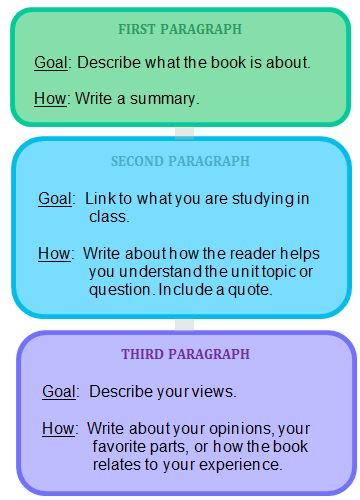 Scott Roy Douglas has worked with high school, university, and adult English language learners around the world. He is a co-author of Q: Skills for Success Second Edition, and the author of Academic Inquiry: Writing for Post-secondary Success. He is an assistant professor in the Faculty of Education on the University of British Columbia’s Okanagan campus.
Scott Roy Douglas has worked with high school, university, and adult English language learners around the world. He is a co-author of Q: Skills for Success Second Edition, and the author of Academic Inquiry: Writing for Post-secondary Success. He is an assistant professor in the Faculty of Education on the University of British Columbia’s Okanagan campus.
Today Scott joins us on the blog to explain how extensive reading could be beneficial to your students.
Supporting Classroom English Language Teaching and Learning with Extensive Reading
A program of extensive reading can be a powerful complement to English language teaching and learning. This blog post explores what extensive reading is, how it can benefit students, what challenges there may be, and how it supports and enhances courses like Q: Skills for Success Second Edition.
What is extensive reading?
Rather than closely reading a single challenging text in class, extensive reading involves students engaging in large amounts of reading at levels that match what they are able to understand easily without using a dictionary or extra help. Typically, students read at least one or two books a week from a wide variety of fiction and non-fiction choices. Students read these books on their own either in their free time or during class, usually at a pace that might be a bit faster than usual for the classroom. The goal is to go beyond thinking of reading as a task, towards developing a habit of reading for pleasure. The key is to remember that extensive reading materials shouldn’t be too difficult or challenging for students. As a rule of thumb, students should choose books with less than four or five new vocabulary words on a page.
What are the benefits of extensive reading?
A lot of research has been done examining the benefits of extensive reading. It seems that the more students read, the better readers they become. In fact, students who engage in a program of extensive reading often increase their reading rates and their overall reading fluency. They can also improve their reading comprehension. It appears that part of this improvement might be down to the development of new vocabulary knowledge. Students can learn new vocabulary incidentally through the extensive reading process as well as deepen the vocabulary knowledge they already have by seeing the words they know in a wide variety of contexts. However, the benefits are not just limited to reading and vocabulary. There even seems to be a positive effect on students’ grammar and writing skills, performance on standardized tests, motivation, and attitude towards reading.
The challenges of extensive reading
While extensive reading programs can provide a rich source of comprehensible input that supports students’ English language learning goals, it can also present a number of challenges. Students who have not taken part in extensive reading programs before might not be used to reading easier texts outside of class and may not immediately see the value in reading interesting and accessible books as homework. In fact, because some students may equate learning English with challenging reading texts, intensive teacher support, and dictionary work, they might choose texts that are too difficult. Poor reading choices can lead to a less than enjoyable experience, thus defeating the purpose of extensive reading. In addition, extensive reading programs don’t always align with what is being covered in class, and students might not see the connections between what is happening in class and what they are reading in their free time. Thus, in order to be successful, the extensive reading process needs to be thoughtfully supported in class, with students having access to level-appropriate reading choices and guidance from the teacher.
How can teachers enrich the extensive reading process?
 Teachers can facilitate the extensive reading process by engaging in a wide variety of activities to support and enrich the experience. For example, you might help students find appropriate books, check in on what they think about the readings, explore how they feel about the characters, and keep track of what is being read. Examples and resources to support these types of activities can be found on the Oxford Graded Readers Teaching Resources page.
Teachers can facilitate the extensive reading process by engaging in a wide variety of activities to support and enrich the experience. For example, you might help students find appropriate books, check in on what they think about the readings, explore how they feel about the characters, and keep track of what is being read. Examples and resources to support these types of activities can be found on the Oxford Graded Readers Teaching Resources page.
One activity your students can do is keep an extensive reading journal. As a framework for their journal entries, you can ask students to write three short paragraphs for each book they read. In the first paragraph, students can ask themselves what the book is about and write a quick summary in their own words. In the second paragraph, they can connect what they read to the topic of the textbook unit they are currently studying, or as in Q: Skills for Success Second Edition, the corresponding unit question. Students can explore the information in the book that helps them answer the unit question, and possibly include a quote that connects to the unit question as well. Finally, students can write what they think about the book in their third paragraph. In this paragraph, they can record their opinions, their favourite parts, and whether the book relates to their own experiences. Thus, students will have a personal and meaningful account of each book they read. You can read students’ journals from time to time to see how they are doing, and the journal entries can also be used as a strong basis for classroom discussions related to the books students are reading.
How can extensive reading complement Q: Skills for Success?
Each unit of Q: Skills for Success Second Edition has now been aligned to an Oxford Graded Reader based on the appropriate topic and level of language proficiency. Starting in August 2017, the first chapters of the recommended graded readers can downloaded for free from iQ Online. These graded readers come from a wide range of genres, all drawn from the Oxford Bookworms Library.
In the Q: Skills for Success series, each unit is centred on an essential question such as “Why is global cooperation important?” or “What happens when a language disappears?” These questions touch on universal themes, encourage curiosity and discussion, and prepare students to engage with learning. All of the activities and skills presented in each unit support students finding answers to the unit questions. The graded readers now provide another avenue of support for students answering the unit questions, while the unit questions prime students to fully engage with the aligned extensive reading choices.
To find out more about the new timesaving and practical resources being added to iQ Online, including Graded Reader chapters and new video content, visit https://elt.oup.com/feature/global/beyond-four-walls.
Further Reading on Extensive Reading
Beglar, D., Hunt, A., & Kite, Y. (2012). The effect of pleasure reading on Japanese University EFL learners’ reading rates. Language Learning, 62, 665–703.
Day, R. & Bamford, J. (2002). Top ten principles for teaching extensive reading. Reading in a foreign language, 14(2), 136-141.
Horst, M. (2005). Learning L2 vocabulary through extensive reading: A measurement study. Canadian Modern Language Review, 61(3), 355-382.
Jeon, E.Y. & Day, R.R. (2016). The effectiveness of ER on reading proficiency: A meta-analysis. Reading in a Foreign Language, 28(2), 246-265.
Krashen, S. (2007). Extensive reading in English as a foreign language by adolescents and young adults: A meta-analysis. International Journal of Foreign Language Teaching, 3(2), 23-29.
Mikami, A. (2016). Students’ attitudes toward extensive reading in the Japanese EFL context. TESOL Journal, 0(0), 1-18.
Nation, P. (2015). Principles guiding vocabulary learning through extensive reading. Reading in a Foreign Language, 27(1), 136-145.
Robb, T. N., & Kano, M. (2013). Effective extensive reading outside the classroom: A large scale experiment. Reading in a Foreign Language, 25, 234–247.
Storey, C, Gibson, K., & Williamson, R. (2006). Can extensive reading boost TOEIC scores? In K. Bradford-Watts, C. Ikeguchi, & M. Swanson (Eds.), JALT 2005 conference proceedings, 1004-1018. Tokyo, Japan: JALT.
Waring, R. & Takaki, M. (2003). At what rate do learners learn and retain new vocabulary from reading a graded reader? Reading in a Foreign language, 15, 130-163.


Reblogged this on hungarywolf.
[…] The benefits of extensive reading for learners of English have been well documented, and there are some informative articles easily discoverable on this blog. […]